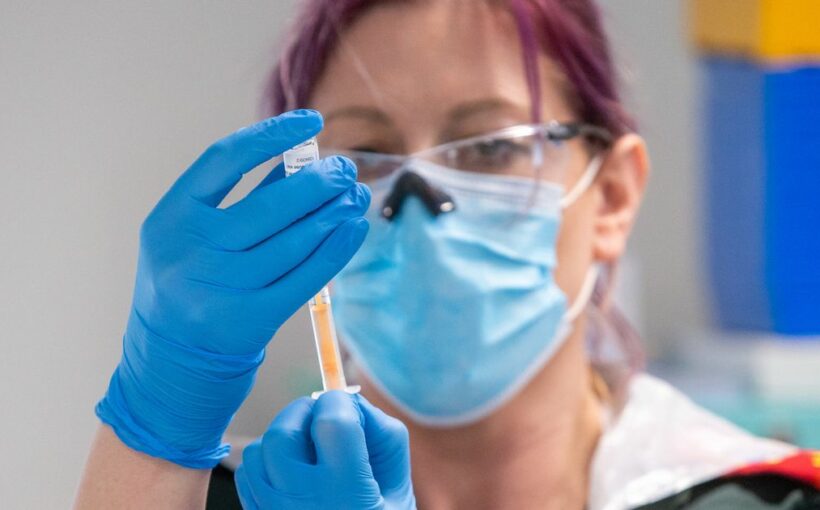Just under half of the people vaccinated in the UK have received the AstraZenecacoronavirus vaccine, despite concerns coming from Germany, Norway and the Netherlands about potential side-effects.
However, Professor Andrew Pollard, whose team developed the vaccine with AstraZeneca, has said that "very reassuring" data from millions of successfully-vaccinated people showed there is no link with blood clotting.
But there are some acknowledged side effects from both vaccines, including tiredness, dizziness and general aches and pains.
And those side effects seem to be hitting women harder than men.
Professor Anthony Harnden, deputy chairman of the Joint Committee on Vaccination and Immunisation, says women are more likely to experience side effects from the Oxford/AstraZeneca jab.
People who get the jab are more likely to get side effects after the first dose than the second, Professor Harnden added.
Asked whether people might experience some side effects, he told BBC Breakfast: “Yes, there are. The Oxford/AstraZeneca vaccine – for the first dose – seems to give quite a lot of minor side effects like a very sore arm, fever, malaise, headache… and sometimes chills which may last for up to 48 hours afterwards.
“They do seem to be more common in women and in younger women.
“With the Pfizer vaccine, which we are giving at the moment, it seems to be the reverse – side effects are more likely with the second vaccine."
He added: “The message is once you’ve had your first Oxford/AstraZeneca vaccine – if you do get some side effects which are unpleasant take some paracetamol.
“And don’t not have your second vaccine because of the side effects because the second vaccine is likely to be less reactogenic than the first.”
NHS guidance also suggests that in some less common cases, people who have had they first dose of the vaccine may suffer slightly swollen glands in the armpit or neck, on the same side as the arm where they had the vaccine.
This can effect last for around 10 days, but anyone experiencing the problem for much longer than that should see their doctor.
It’s also advised that anyone due for breast screening should mention it if they’ve recently been vaccinated.
Source: Read Full Article


